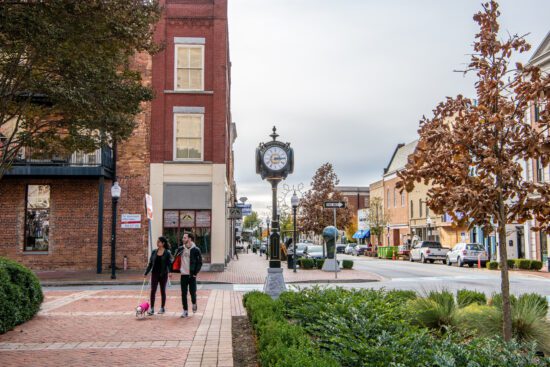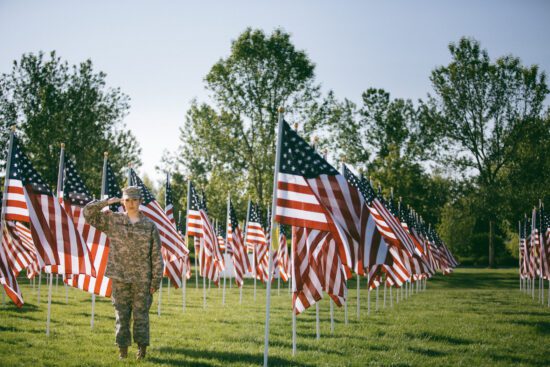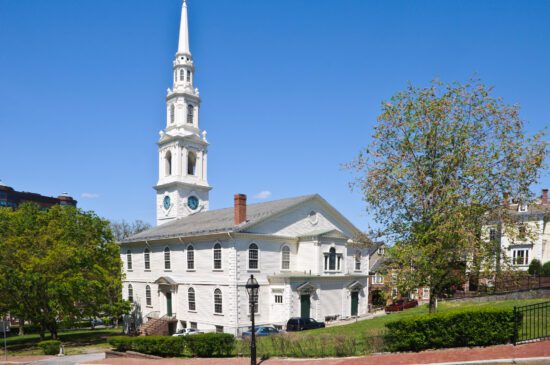When the coronavirus pandemic hit, a feeling of helplessness and fear hit many of us. What could we do? How would we be able to serve in the midst of restrictions? What if we got sick? But one church in Mississippi stepped up to meet an immediate need. First Baptist Church of Picayune started a free daycare for healthcare providers. So far, they have had a total of 42 children—a number that fluctuates each day depending on the shift—with ages ranging from 1 month to 13 years old. The pastor, Tony Lambert, was kind enough to answer a few questions about his church’s ministry. We hope this will encourage your church to care for your community, no matter how great or small the needs.
Lindsay Nicolet: What led your church to beginning this free daycare?
Tony Lambert: I became pastor of Picayune's First Baptist Church just seven months ago. We sensed God had placed in our hearts five very specific things to lead the church to do as a part of our calling.
One of those was “caring for those who care for us.” I had met with several physicians, nurses, and various other healthcare providers to find out what needs they had. I believe this to be one of our most neglected groups in society. Most feel they have no needs. But the tremendous pressure they are under from multiple directions creates a high rate of burnout, compromise, and temptation.
We were in the middle of putting together a couple of things when one of our doctors reached out and made us aware of what they saw coming. Shortly after that the request was made for us to utilize our resources to begin making PPE’s for local healthcare providers. The Family Physicians of Mississippi picked up on this and our story, and the mask design went viral.
A few days later our local hospital administrator called and said, “Well, you have been asking . . . so, here it goes.” He then outlined the need of healthcare providers who were on the frontlines fighting the pandemic and the added stress of protecting and providing for their own children. Tears began to stream down my face, and all I could say was YES. Truly, God can do in a moment what we cannot do in a lifetime!
LN: How did you go about setting it up? What procedures did you have to go through?
TL: We asked what the needs were, potential number and ages of children, and hours of provision expected. This was on a Thursday afternoon. We began to pull together information and allocate space to be used on our campus. Friday night we called a meeting of staff, lay leadership, and local educators to develop a strategy. We decided to treat it much like an extended day camp even though we could have operated under our preschool license. They needed us to open in 48 hours, and we did.
LN: What things do churches need to remember as they seek to serve healthcare providers in this way?
TL: I think the key is listening carefully. If you plan and provide based on your wishes and desires the opportunity is missed. The safety of the children and our volunteers has to be top priority. We also felt that we must submit to local and state authority in order to maintain our integrity.
LN: What safeguards did you set up to ensure that children are safe from abuse while in your care?
TL: We limited our volunteers to those who had been vetted through our own ministries with background checks, ministry safe training, or those approved by our local school systems. All are members of our congregation. The rules are simple: No one is to be alone with any children at any time. Our directors or staff step in when volunteers need any kind of break to ensure this.
LN: How are you seeking to protect others from contracting the coronavirus in light of healthcare workers posing a significant risk of spreading the virus?
TL: No one except childcare workers, cook teams, or our cleaning teams are allowed in the building at any time. Children are dropped at the front doors each morning with parents signing them in. Each child is checked for temperature, had hands sanitized, and kept in groups of immediate families or consistent groups of five each day. We require that each child sanitize hands each hour. Workers who are in close proximity to the children are required to wear masks at all times.
LN: How did you ensure you were complying with government regulations for the pandemic?
TL: We consulted healthcare providers first. I also called the city manager and talked with an attorney in the healthcare industry to make sure we were in compliance. We fell under the essential category due to providing for the healthcare industry.
LN: If churches are looking to serve their communities in this way, what advice would you offer?
TL: Take time to consult church leadership. Ours was totally on board. The key was having leaders who would be engaged on a consistent basis. We turned to two ladies who have served as co-directors through the process. They have been amazing. I would also suggest making commitments for short time frames. We have run in cycles of two weeks with a mutual evaluation at the end of those two weeks. We just completed week five.
It is not easy. The stress level has been high at times as we are balancing our calling from God with compliance to authorities. Our hours have been from 6 a.m. to 7:30 p.m. most days. The nature of shift work with hospitals has continued to demand our schedules be fluid. After the first week, we divided our volunteers into three daily shifts. This helps tremendously with the daily stress levels. We must consider that our families are dealing with this personally each day as well.
Unfortunately there are those in the community who have not been supportive. For us it seemed as though we had no choice but to walk through the door God had opened. How could we not support those who are on the frontlines “fighting” for us? It has been one of the greatest honors in my ministry, and we have rested on Esther 4:14, “for such a time as this.”
For more information on making your church a place that is safe for survivors and safe from abuse, visit the Caring Well site or read Becoming a Church that Cares Well for the Abused.










